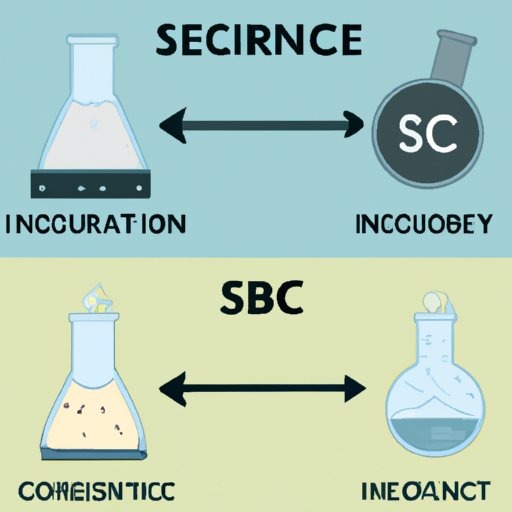Introduction
Science experiments are activities or procedures designed to test hypotheses, observe phenomena, and gather data. They are often conducted as part of a larger scientific research project, with the aim of discovering new knowledge about the natural world. In this article, we explore the purpose of science experiments, looking at their goals, significance, and role in research.
Exploring the Purpose of Science Experiments
To understand the purpose of a science experiment, it is important to look at its goals and significance. The primary goal of a science experiment is to answer a question or test a hypothesis. This involves gathering data and making observations to determine whether the hypothesis is correct or not. Experiments are also used to gain insights into the behavior of a particular system or process.
The significance of science experiments lies in the fact that they are able to provide reliable evidence for or against a hypothesis. Experiments are able to provide more conclusive results than other forms of research, such as surveys or interviews. By testing a hypothesis and gathering data through an experiment, scientists can draw more accurate conclusions and make better-informed decisions.

Examining the Role of Science Experiments in Research
Science experiments play a crucial role in scientific research, providing reliable evidence to support or refute hypotheses. Experiments allow researchers to control variables and observe the effects of changes on a system or process. This makes them ideal for testing theories and gathering insights into how things work.
There are various types of experiments used in scientific research, including laboratory experiments, field experiments, and randomized controlled trials. Each type of experiment has its own advantages and disadvantages, so it is important to consider which one is best suited for the research being conducted.
Laboratory experiments involve conducting tests in a controlled environment, such as a laboratory. This allows researchers to precisely control variables and measure the effects of changes. Field experiments, on the other hand, involve conducting tests in the real world, where variables are harder to control.
Randomized controlled trials are another type of experiment used in research. These involve randomly assigning participants to different groups, then measuring the effects of the treatment on each group. This type of experiment is often used to test the efficacy of a new drug or treatment.
Regardless of the type of experiment used, the goal is always to collect reliable data that can be used to draw accurate conclusions. By controlling variables and collecting data, scientists can learn more about the natural world and make better-informed decisions.
Conclusion
In conclusion, science experiments are activities or procedures designed to test hypotheses, observe phenomena, and gather data. Their purpose is to answer questions and make observations, providing reliable evidence to support or refute hypotheses. Experiments are also used to gain insights into the behavior of a particular system or process. Different types of experiments can be used, depending on the research being conducted.
Overall, science experiments play a vital role in scientific research, allowing scientists to control variables, measure the effects of changes, and draw accurate conclusions. By conducting experiments, scientists can gain a deeper understanding of the natural world and make better-informed decisions.
(Note: Is this article not meeting your expectations? Do you have knowledge or insights to share? Unlock new opportunities and expand your reach by joining our authors team. Click Registration to join us and share your expertise with our readers.)
